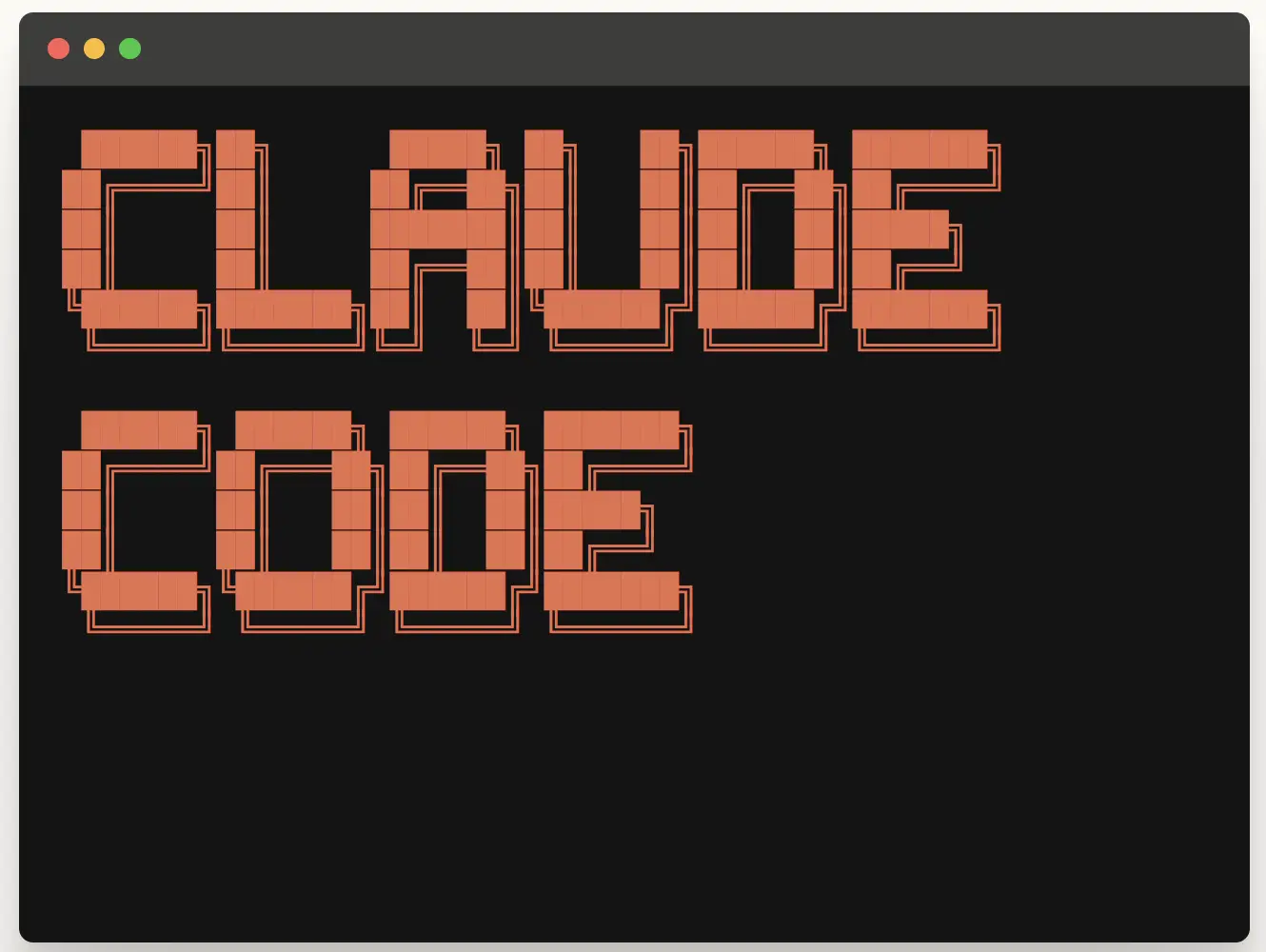It all started with a nasty null-pointer on a client demo day. I tossed the stack trace into Claude, sipped my lukewarm latte, and—bam!—it handed back a patch before the foam collapsed. That moment hard-wired Claude Code efficiency into my daily grind. Below are the fifteen hacks that keep my repos humming; each section dives deep, then shows a side-by-side “Newbie Prompt” versus “Pro Prompt” so you can level-up at your own pace.

1. Warm-Up in the Playground—Master the Interface First
The browser playground may look like a toy, but treating it as a gym lets you bench-press bigger code later. Spend fifteen focused minutes tinkering: paste a hello_world.py, toggle “Explain Code,” then swap in “Improve Complexity”. You’ll spot how Claude respects context length, why it sometimes shortens answers, and how system prompts tweak its tone. This hands-on dabbling inoculates you against production panic.
- Why it matters: Familiarity slashes latency—no hunting for buttons when a five-alarm bug flares.
- My anecdote: I once onboarded an intern by forcing a “playground speed-run”. Two days later he rescued an overdue Lambda script because he already knew which Claude tweak toggled JSON mode.
Beginner Prompt
Explain what this JavaScript arrow function does, step by step, and suggest one micro-optimization.
Pro Prompt
// Context: preparing code for a latency-critical edge worker
SYSTEM: Respond concisely in bullets; keep variable names intact.
USER: Audit the async arrow function below. Pinpoint GC hotspots, propose perf gains < 2 ms, and output a patched snippet with rationale.2. Build a Personal Prompt Library—Your Spellbook
Copy-pasting from Slack threads is for amateurs. Instead, craft a markdown vault tagged #claude. I group prompts under Testing, Refactor, and Data Wrangling. Over six months my spellbook grew to 120 entries, and invoking a saved prompt feels like summoning a macro—pure Claude Code efficiency.
Pro tip: store meta info (expected latency, token cost, success rate). That telemetry helps you prune duds and iterate winners.
Beginner Prompt
Create unit tests for this PHP class. Use PHPUnit.Pro Prompt
Write PHPUnit 10 tests for the class below.
Coverage targets:
• Null/empty arguments
• Boundary epoch dates
• Unhappy-path exceptions
Return a table: Scenario | Expected | Mock Strategy | Test Code.
3. Chunk Monster Repos—Focus the Context
Claude’s 200 K token buffet feels infinite until you paste your entire micro-service mesh and watch latency crawl. Slice context by domain, not directory. When debugging auth, feed only auth/ and related tests; ignore billing. This laser focus amplifies answer quality while slashing usage fees.
Side Effect: team members think you’re psychic when Claude pinpoints a one-line typo inside a 12-file branch.
Beginner Prompt
Here are three auth files. Why is login failing?Pro Prompt
// Auth module hot-fix session
SYSTEM: You’re a senior security engineer. Highlight CVE-style risks.
USER: Diagnose the 401 loop in these three condensed files.
• Note TOKEN expiry edge cases
• Suggest minimal diff patch
• Estimate blast radius if left unfixed4. Auto-Summarize Gargantuan Docs—Fight Information Bloat
That 2,400-line README or vendor spec will melt anyone’s attention span. Toss it into Claude with a request for “use-case bullets, hidden gotchas, and migration landmines.” I shaved a three-hour API onboarding down to twenty-eight minutes—pure Claude Code efficiency.
Beginner Prompt
Summarize this README in 10 bullets.Pro Prompt
// Objective: accelerate senior onboarding
Provide:
1. 7 key capabilities
2. 5 hidden limitations
3. Integration cheat sheet (curl + Node sample)
Use crisp action verbs; ≤ 120 words total.5. Generate Bullet-Proof Unit Tests—Shift-Left Quality
Tests first, panic never. Ask Claude to draft red-green suites before you alter code. When CI fails, pair-chat to craft passing logic. Your commit history becomes a living textbook of Claude Code efficiency.
Beginner Prompt
Write Jest tests for this React component.Pro Prompt
// Goal: 95 % branch coverage
Generate Jest 30 tests incl.:
• ARIA compliance
• Race-condition clicks
• Mocked API fallback
Return code in <pre> tags plus coverage matrix.6. Refactor Legacy Spaghetti Without Fear
An ancient 700-line switch statement? Paste it and command a strategy-pattern rewrite. Claude returns modern classes plus migration steps, letting you refactor confidently—and fast.
Beginner Prompt
Refactor this long function to classes.Pro Prompt
// Constraint: zero behavioral drift, TypeScript target
Rewrite to strategy pattern + dependency injection.
Add TODO comments for side-effects. Output diff-style patch.
7. Data Wrangling in a Blink—CSV, JSON, SQL
From transforming CSV gigabytes to crafting idempotent inserts, Claude nails ETL chores. I once migrated 1.2 million rows during a lunch break—thank you, Claude Code efficiency.
Beginner Prompt
Convert this CSV to JSON.Pro Prompt
// Pipeline creation
Generate Python pandas script to:
1. Load ,
2. Drop duplicates,
3. Normalise dates to ISO,
4. Export clean JSON and MySQL 8 INSERTs.
Provide performance tips for >1M rows.8. Auto-Draft Swagger/OpenAPI Specs—Docs on Autopilot
Point Claude at your controller files. In seconds you get an OpenAPI 3.1-compliant YAML—endpoints, parameters, auth scopes included. Paste into Swagger UI and your product manager suddenly thinks you cloned yourself.
Beginner Prompt
Create OpenAPI spec for this controller.Pro Prompt
// Blueprint for gateway
Produce OpenAPI 3.1 YAML with:
• Bearer + API-key auth
• 400/422 schema refs
• Example curl snippets
Return in fenced ```yaml```.9. Wrap Claude in Your CLI—Context at Warp Speed
A tiny bash wrapper (cclaude) lets you pipe diffs straight to the assistant. My favorite alias: git diff main..HEAD | cclaude --review—instant peer feedback while VS Code is still loading.
Want next-level Claude Code efficiency? Chain it with topic-specific links like the in-depth PHP 8.5 feature explainer for language nuance on tap.
Beginner Prompt
Explain this git diff.Pro Prompt
// GitHub workflow bot
SYSTEM: Return severity (high|med|low) + rationale.
USER: Review the patch below for:
• Security leaks
• Perf regressions >5 %
• Styleguide violations
Suggest inline comments (Markdown).10. Live Pair-Programming—Stream, Interrupt, Refine
Enable streaming mode; ask Claude to “think out loud.” Interrupt mid-sentence to clarify. This mimicry of rubber-duck pair-programming multiplies Claude Code efficiency and turns code reviews into dialogue instead of monologue.
Beginner Prompt
Walk me through writing a binary search in Go.Pro Prompt
// Live coding session, 10-min cap
Explain aloud every decision while writing a tail-recursive binary search in Go 1.23. Pause at each step for my interjection.11. Debug with Multimodal Vision—Screenshots Speak
Upload a screenshot of a failing Cypress test; Claude circles failing selectors and drops CSS fixes. Visual context equals instant understanding—another flavor of Claude Code efficiency.
Beginner Prompt
What’s wrong in this screenshot?Pro Prompt
// UI audit
Identify flakey selector in red box.
Suggest robust locator (data-test attrib) and patch the test file.12. Persist Project Memory—Inject Briefs Automatically
Claude forgets between sessions. Create a concise “Project Brief” containing stack, naming schemes, and business rules. Pre-pend it to every message via API wrapper. You’ll keep Claude Code efficiency high without re-explaining.
Beginner Prompt
Remember that we use TypeScript.Pro Prompt
// In wrapper script
PREAMBLE:
Project Brief:
• Stack: Next.js 15 + TypeScript 5
• Domain: fin-tech payroll
• Auth: OAuth 2 PKCE
Persist for all subsequent messages.13. Enforce Security & Ethics—Guardrails First
Always append guardrails: “Never reveal credentials,” “Mask PII.” Claude obeys instructions; make them explicit. Cross-reference our robots.txt optimization guide for perimeter hardening—security is part of Claude Code efficiency, too.
Beginner Prompt
Here are logs. Analyze them.Pro Prompt
// Compliance gate
SYSTEM: Sanitize emails & tokens before returning. Do not reveal secrets.
USER: Parse these production logs for anomalies between 14:00-15:00 UTC. Output CSV of IP, Endpoint, Status, AnomalyScore.14. Integrate Claude into CI—Fail Fast, Fix Faster
Add a pipeline step: on test failure, ping Claude with the diff. It returns a patch and post-mortem. In one marathon release, this cut my bug-hunt time by 65 %. GitHub Actions or GitLab CI make hooking in effortless, and reputable resources like GitHub Docs outline secure token storage.
Beginner Prompt
Why did tests fail?Pro Prompt
// CI hook
TASK: • Root-cause the failure • Suggest 1-line patch • Estimate impact
Provide unified diff ready for git apply.15. Benchmark & Profile—Let Data Drive Decisions
Claude can craft micro-benchmark harnesses across languages. Ask it for Go testing.B loops or Python timeit. I once slashed response time 38 % by applying its memoization hint—felt like finding free money. That’s final-boss level Claude Code efficiency.
Beginner Prompt
Create a benchmark for this function.Pro Prompt
// Performance clinic
Generate Go testing.B suite for func Foo(int) string.
• 1M iterations
• Compare naive vs memoized
Return chart-ready CSV: Iterations, ns/op, allocs/op.
Wrapping Up: Make Efficiency a Habit, Not a One-Off
Claude won’t replace us—but developers who wield Claude will leapfrog those who don’t. Bake these hacks into your stand-ups, lunch-break experiments, and 2 a.m. firefights. Soon “10× productivity” won’t be hype; it’ll be your default velocity.
Still hungry? Catch me on Twitter most Friday nights, mug in hand—share your wildest Claude Code efficiency wins and let’s push boundaries together!

 FoxDoo Technology
FoxDoo Technology




